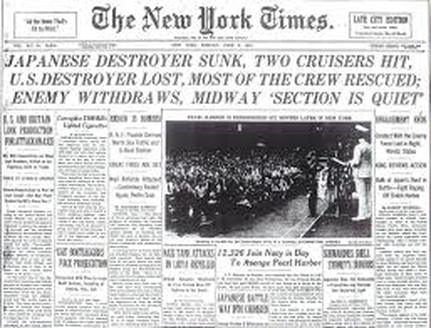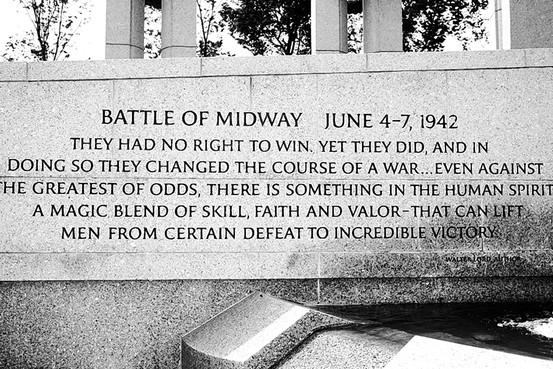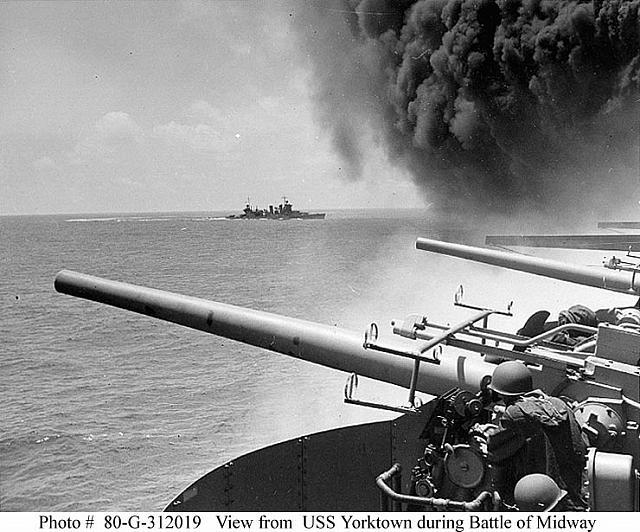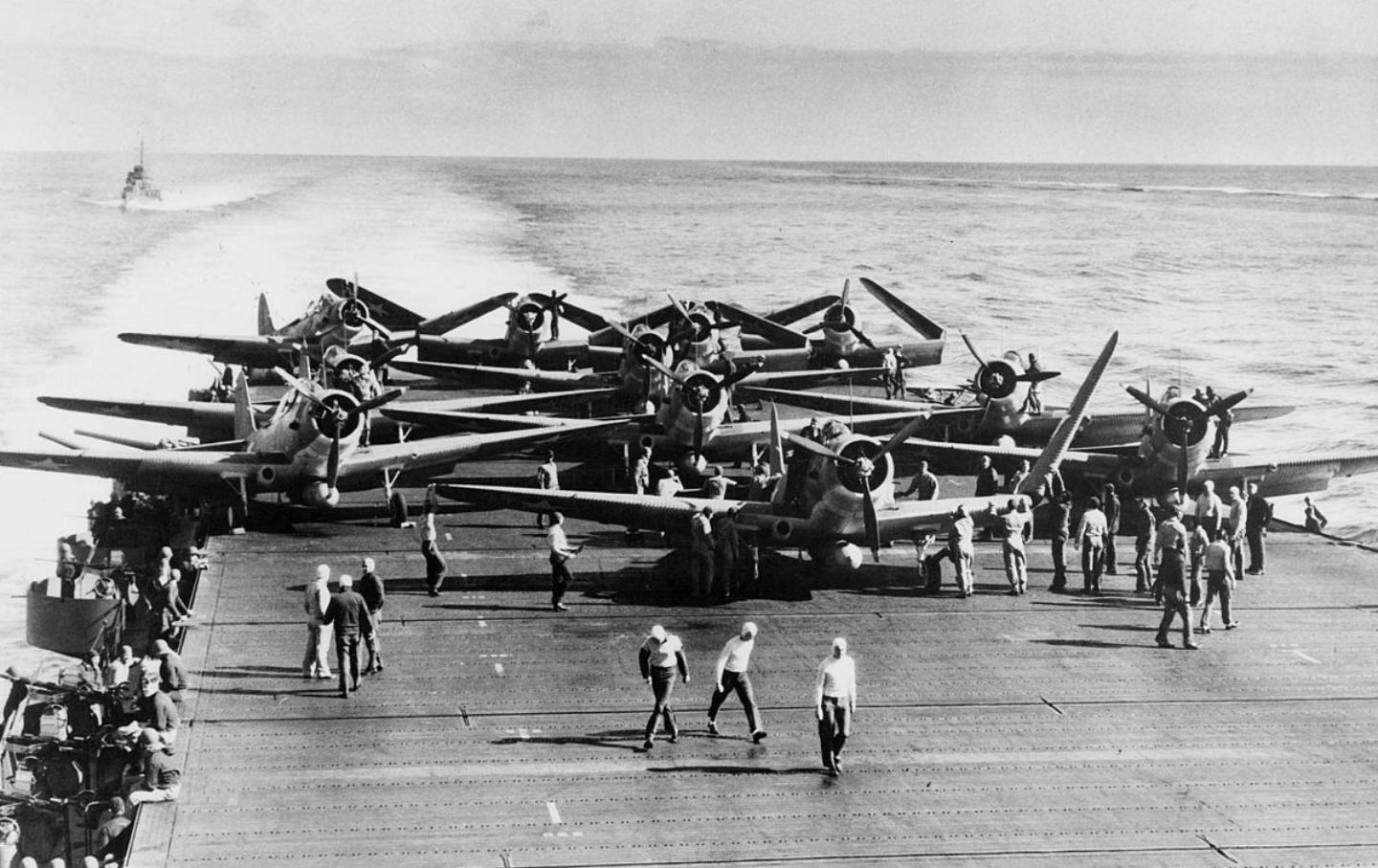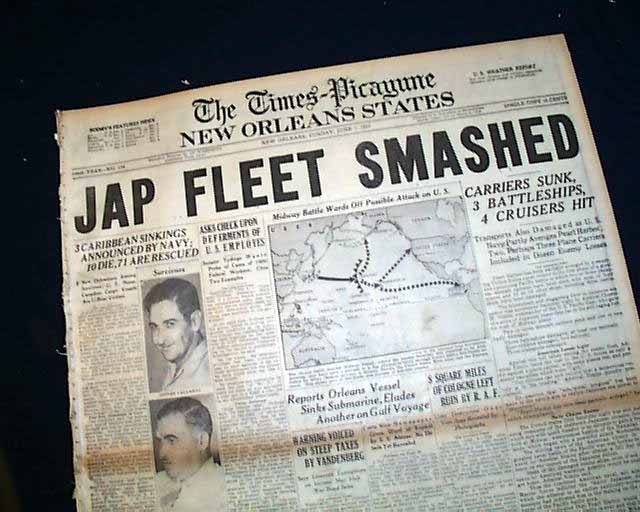
On June 7, 1942, the Battle of Midway—one of the most decisive
U.S. victories in its war against Japan—came to an end. In the
four-day sea and air battle, the outnumbered U.S. Pacific Fleet
succeeded in destroying four Japanese aircraft carriers with the
loss of only one of its own, the Yorktown, thus reversing the tide
against the previously invincible Japanese navy.
